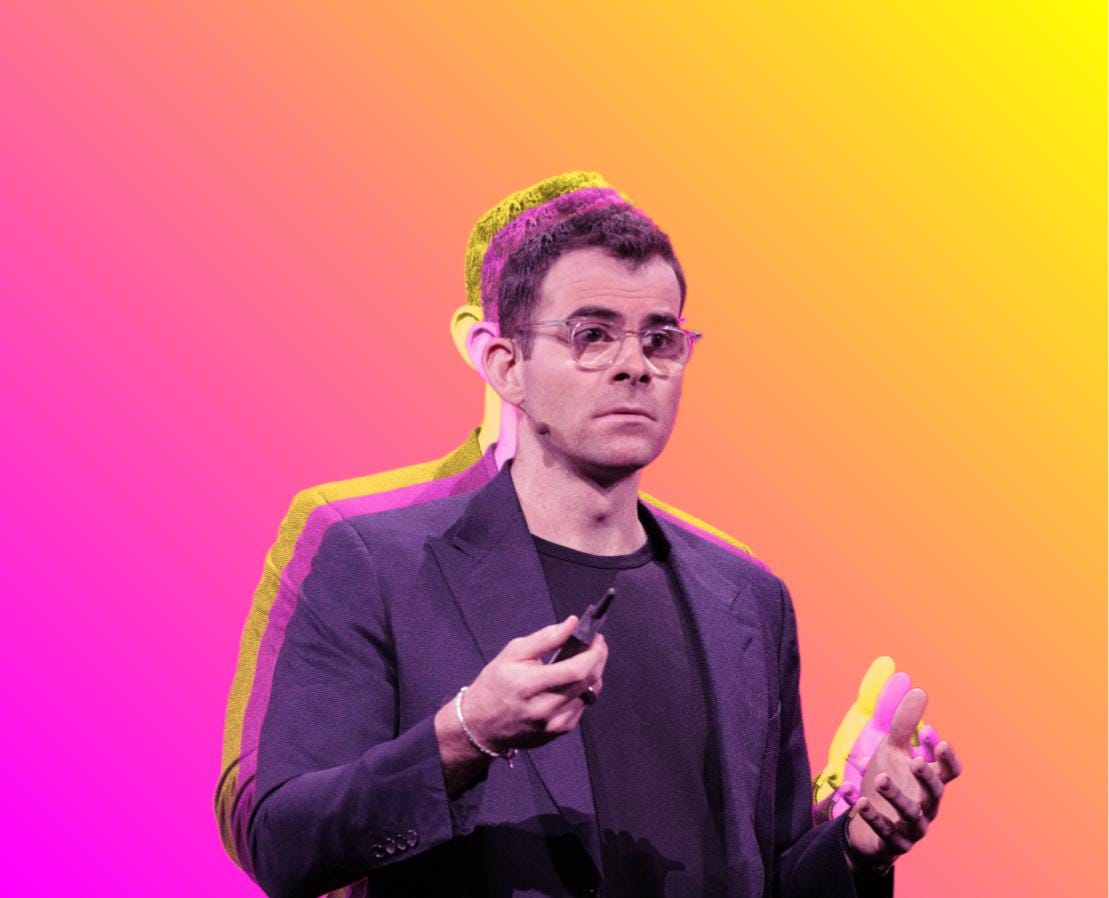Are Hashtags Still Relevant? Adam Mosseri Says 'No', Instagram Says 'Yes'
Let's talk about hashtags again and why Instagram's Adam Mosseri and platforms like X and LinkedIn are demoting them.
💬 Quick CONVERSATION STARTERS:
Who’s confused like us about hashtags?
Not us talking again about hashtags… But, just a few weeks ago, in one of his AMA sessions, Instagram’s head Adam Mosseri repeated once again that hashtags are not relevant to increase reach.
“Contrary to popular belief, hashtags are not a way to get more reach,” Mosseri said. “They’re a great way to let people know what your post is about and connect posts. […] They’re useful for things like search, but generally speaking, no, hashtags do not improve your reach.”
This is not our first Substack about hashtags (and not the last), because there is still a lot of confusion. A LOT OF CONFUSION!
And Instagram seems to add to the confusion. Just last week, while drafting a post in our Instagram, we got this message:
Instagram itself is now suggesting to “Add relevant hashtags” because “hashtags can help you reach more people who are into those topics.”
So what is it?
We don’t have an answer.
In our previous post on hashtags, we interviewed Chris Messina, the inventor of hashtags in 2007, and he told us: “Sure, many people abuse and overuse hashtags, but they’re far from obsolete. They’ve become an integral part of how we communicate and share information online — especially across social media platforms.”
Chris added: “The use of hashtags is even more important and vital today.”
We also interviewed social media expert Matt Navarra.
“Hashtags are no longer the discovery engine they once were and I think that's by design,” Matt said. “But saying hashtags are completely irrelevant is probably a step too far l think. The truth is that hashtags are now platform-dependent tools. They're not universal growth hacks anymore and on some platforms they've lost their prominence, but it doesn't mean that they're obsolete.”
In our previous post, Matt explained the different use of hashtags for different platforms, including X (formerly known as Twitter), Instagram, and LinkedIn.
Hootsuite provided a few tips and best practices just last month, adding “Hashtags are a great way to connect with like-minded people and can be used for almost anything:”
If you use a trending hashtag, make sure you know why it’s trending to avoid unintentionally associating your brand with something inappropriate.
Don’t use hashtags that are more enticing than the content you’re sharing, or you’ll risk losing your audience with a single click.
Don’t use hashtags to express a complete thought or point, as you would a sentence. Keep them brief and catchy.
Recommendations for the best number of hashtags vary among social networks. For hashtag recommendations for each social network, see Know your networks.
You can use more hashtags with Instagram, because Instagram posts often don't include links. This means that hashtags don’t compete with links against the character count.
What about hashtags for research and data collection?
Well, it seems one interesting use of hashtags is for research.
A recent study on “Relative engagement with sources of climate misinformation is growing across social media platforms,” reveals how researchers use hashtags to collect data and analysis.
“We operate under the premise that hashtags significantly encapsulate posts’ key aspects and therefore provide a compact way to analyse topics,” researchers Saverio Storani, Walter Quattrociocchi, Matteo Cinelli from La Sapienza University in Rome, Italy, and Max Falkenberg from City University of London, UK, pointed out in their study, which analyzed the discourse on climate change across multiple social media platforms, examining the evolution of user engagement with climate-related content and whether this content links to reliable or unreliable news media sources.
They added: “We first identify the most frequently used hashtags in posts labelled as either unreliable or reliable and compute their relative difference i.e., the difference between the relative frequency in each of the two categories in order to understand the importance with respect to the two sides.”
It’s interesting to notice that the authors believe “the different role of hashtags across platforms-more integrated and frequent on Twitter, less so on Facebook- may further influence the visibility and engagement with specific narratives. Identifying these different trends across platforms is important given that existing research has been largely platform specific, preventing a comparative analysis.”
What does AI have to do with hashtags?
According to Hamburg-based software company Classix, “The hashtag is dead, but information lives on.”
The German firm explained that artificial intelligence and generative AI are playing a role in why platforms like Instagram and LinkedIn are killing the hashtag — or rather why they have demoted hashtags.
“Artificial intelligence is changing how information is processed, categorized, and distributed,” Classix writes. “Instead of rigid keywords, AI systems today recognize contextual relationships. Modern algorithms analyze semantic content; they understand what a post is really about.”
Even without a hashtag, a system recognizes whether a post is about sustainability, mechanical engineering, or sales.
Tools like Natural Language Processing (NLP) and machine learning make classic keyword tagging superfluous. And they do so much more precisely, personalized, and dynamically than any hashtag ever could.
In a world without hashtags, content counts.
People find relevant information through recommendations, natural language search queries, or algorithmic suggestions based on their behavior.
Platforms rely on semantic search engines, personalized feeds, and context-based filters.
Content must be well-written, precisely formulated, and clearly structured thematically. Pure hashtag lists without context are losing value. Quality beats quantity, both in terms of content and distribution.








I don't use the pound sign for anything other than what it is. I don't follow trends, and don't use buzzwords. I thought the whole 'hashtag' thing was goofy from the start. I'm a progressive person but buzzwords and trends come and go quickly. Just as I don't use 'insane', 'crazy', or 'destroyed' incorrectly.